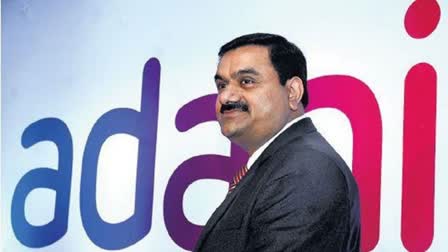Hyderabad: Gautam Adani, the chairperson of the Indian multinational conglomerate Adani Group, has been indicted by a US court in New York for his involvement in an alleged bribery and fraud scheme.
Adani and his nephew Sagar Adani are among eight defendants, who are accused of paying about Rs 2,029 crore ($265 million) in bribes to Indian government officials between 2020 and 2024 to secure solar energy supply contracts with state-run power distribution companies (DISCOMS).
Even when the bribery claims are associated with Indian authorities, US law allows it to prosecute corruption investigations involving US investors or markets.
The period in which the bribes were allegedly paid coincides with the release of a damning report by US-based short seller Hindenburg Research in 2023. The report accused the Adani Group of stock manipulation and accounting fraud. It triggered a $150 billion loss in the Adani Group's market value.
The alleged bribery period coincides with the publication of a crucial report by Hindenburg Research, a US-based short seller, in 2023. It charged the Adani Group with accounting fraud and stock manipulation, following which the market value of the conglomerate dropped by $150 billion.
Following the charges, Adani Group denied all of them, saying the allegations by US prosecutors are “baseless” and the conglomerate is a “law-abiding” organisation, “fully compliant" with all laws.
“The allegations made by the US Department of Justice and the US Securities and Exchange Commission against directors of Adani Green are baseless and denied,” the group spokesperson said in a statement, adding that all possible legal recourse will be sought.
Let’s look at a timeline of how the Adani crisis unfolded in the nearly 2-year span.
Developments In 2023
January 24: US-based short-seller Hindenburg Research accused the Adani Group of fraud and brazen stock price manipulation. The revelations resulted in up to 10% of the conglomerate’s stocks.
January 27: The conglomerate denied all allegations as false and announced that it will take a legal route against Hindenburg Research in the US and India.
January 30: The issue of the Adani-Hindenburg revelations triggered a stormy Budget session in the Parliament as the opposition demanded a debate on the reported controversy as some government enterprises like Life Insurance Corporation of India (LIC) had stakes in Adani Group shares. Later in the session, the opposition led by the Congress party demanded a probe by the Joint Parliamentary Committee (JPC) into the Hindenburg allegations.
January 31: Adani Enterprises Ltd. (AEL), following the public offer (FPO), received a full subscription, leading to modest stock gains for the Adani Group.
February 1: Adani Enterprises Ltd. (AEL) suddenly cancelled its Rs. 20,000-crore FPO despite successful performance (28.5% gain) a day ago, saying it would return the investor’s money collected in the FPO given the market risks.
Credit Suisse has stopped accepting bonds of Adani Group companies as collateral for margin loans to its private banking clients, per a Bloomberg report.
Amid the crisis, Adani slipped from the number three position in the Forbes list of richest persons to 14th, with his net worth down by $11 billion in a day.
February 9: The Supreme Court agreed to hear a plea seeking directions to the Centre to constitute a committee monitored by a retired SC judge to probe into the Hindenburg Research report.
February 10: The Supreme Court sought the regulatory framework from the Securities and Exchange Board of India (SEBI) and the central government to produce the existing regulatory framework in place to protect investors, who reportedly lost huge money following the Hindenburg report.
